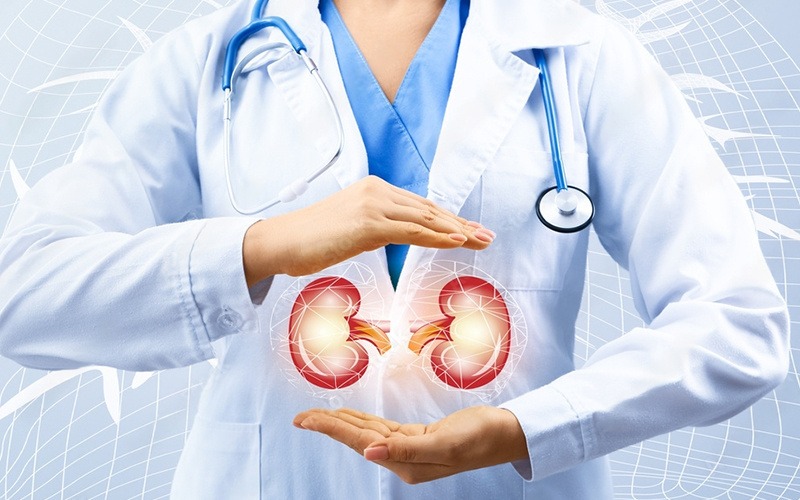A 23-year-old youngster was born with a single kidney, even though had problems due to blockage in the urine transporting tube which failed to correct even with his childhood surgery and lost its functionality with the passage of time. Later, it led to end-stage kidney disease requiring dialysis. Kidney Transplant and Robotic specialist Dr. Pradeepa at NU Hospitals, Shivamogga operated on him for a successful kidney transplant.
Unlike many of us, Darshan (name changed for privacy) was born not with two but single kidney. Individuals born with a single kidney often have normal functioning of the kidney. Hence, they do live life as normally as someone born with two kidneys. Additionally, Darshan was also born with a condition of congenital obstructive megaureter. The ureter in the human body is a soft pipe-like structure that allows urine to flow from the kidneys to the bladder. This pipe was blocked and also suffered from reflux, i.e. it is reverse flow of urine back into the kidney. He underwent corrective surgery at the age of 11 however his kidney lost its function gradually to end up in end stage renal disease at the age of 23 years requiring to start on hemodialysis.
End-stage kidney disease (ESKD) is a condition where the kidneys are unable to perform their normal functions of filtering waste and maintaining fluid and electrolyte balance. ESKD is usually the result of chronic kidney disease (CKD), which is a progressive loss of kidney function over time due to various causes, such as diabetes, hypertension, glomerulonephritis, polycystic kidney disease, Obstructive uropathies. etc.
Although Chronic kidney disease cannot be cured, its progression can be controlled with proper management of his primary problem like controlling diabetes, hypertension etc. Once they reach End Stage Renal Disease they need renal replacement therapy: One is Dialysis and the other one is Kidney transplant.
Dialysis is a process that artificially removes waste and excess fluid from the blood using a machine (hemodialysis) or the lining of the abdomen (peritoneal dialysis). Whereas a kidney transplant is a surgical procedure wherein a donor’s one kidney (live or deceased) is removed from the donor and transplanted into a patient having end-stage renal disease or irreversible advanced kidney disease.
Before undergoing kidney replacement therapy, a kidney transplant team including a nephrologist, urologist, anaesthesia, and other healthcare staff initiates the process of evaluation that includes thorough history, examination, matching of the kidney, decision on which kidney to be taken for transplant etc.
As kidneys can be donated only willingly by family members, Darshan’s mother was found to be a suitable match for him after blood type compatibility and tissue typing test.
Dr. Pradeepa M. G., a Sr. Consultant Urologist, transplant surgeon, and Robotic urologist at NU Hospitals, Shivamogga, operated successfully on Darshan for a kidney transplant surgery with the help of NU Trust. We are glad that Darshan now lives a healthier and more fulfilling life.
Key Takeaway Messages:
- Any person born with only one kidney can live life as normally as someone born with two kidneys. There are no special instructions or recommendations for living a quality life in this case. However, undergoing regular health checkups is always recommended.
- Most kidney diseases are initially asymptomatic and hence, early detection is the best way to control the worsening of kidney function.

